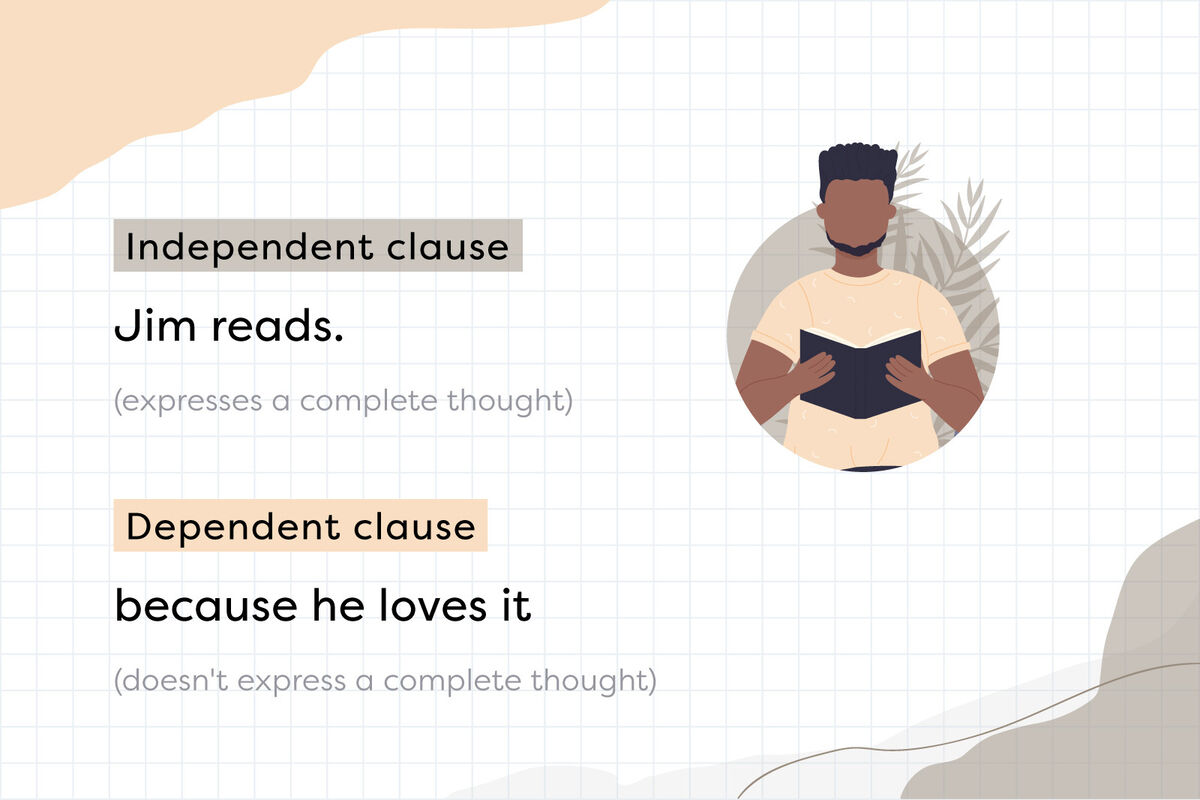

Independent and dependent clauses are the building blocks of sentences. A single independent clause expresses a complete thought and can be a sentence by itself. Dependent clauses don’t express a complete thought, but they add more information to a sentence. When you join independent and dependent clauses with conjunctions and proper punctuation, they create compound and complex (and compound-complex!) sentences that are fun and engaging to read.
An independent clause is a full sentence. It does not need to be joined to any other clauses because it contains all the information necessary to be a complete sentence.
Independent clauses have three components:
Independent clauses can be simple sentences that consist of a subject and a verb. For example:
If you add direct objects to these sentences, they’re still independent clauses:
Join independent clauses to other independent clauses with coordinating conjunctions (for, and, nor, but, or, yet, so) or semicolons. These new sentences are called compound sentences.
When you combine independent clauses without proper punctuation, you get a run-on sentence. For example, “Jim reads the newspaper he understands what’s happening in town” is a run-on sentence.
When two independent clauses are joined only by a comma (such as “Jim reads the newspaper, he understands what’s happening in town”), it creates a grammatical error called a comma splice. Avoid these common mistakes by combining independent clauses correctly.
Like independent clauses, dependent clauses include a subject and a verb. But unlike independent clauses, they do not express a complete thought. They add more information to an independent clause to clarify meaning but can’t stand alone.
There are several different types of dependent clauses, including:
You can spot a dependent clause by the presence of a subordinating conjunction (such as before, after, because, since, in order to, although, whenever, while, or even though).
AdvertisementWhen dependent clauses stand on their own, they don’t make much sense. For example:
However, when you add them to independent clauses, their meaning is clear:
Dependent clauses can’t stand alone as a full sentence. If they’re not joined to another clause, they create a sentence fragment. For example, “because I forgot my homework” is a sentence fragment because it doesn’t express a complete thought. When you combine it with an independent clause to make “Because I forgot my homework, I got sent home,” it’s no longer a sentence fragment.